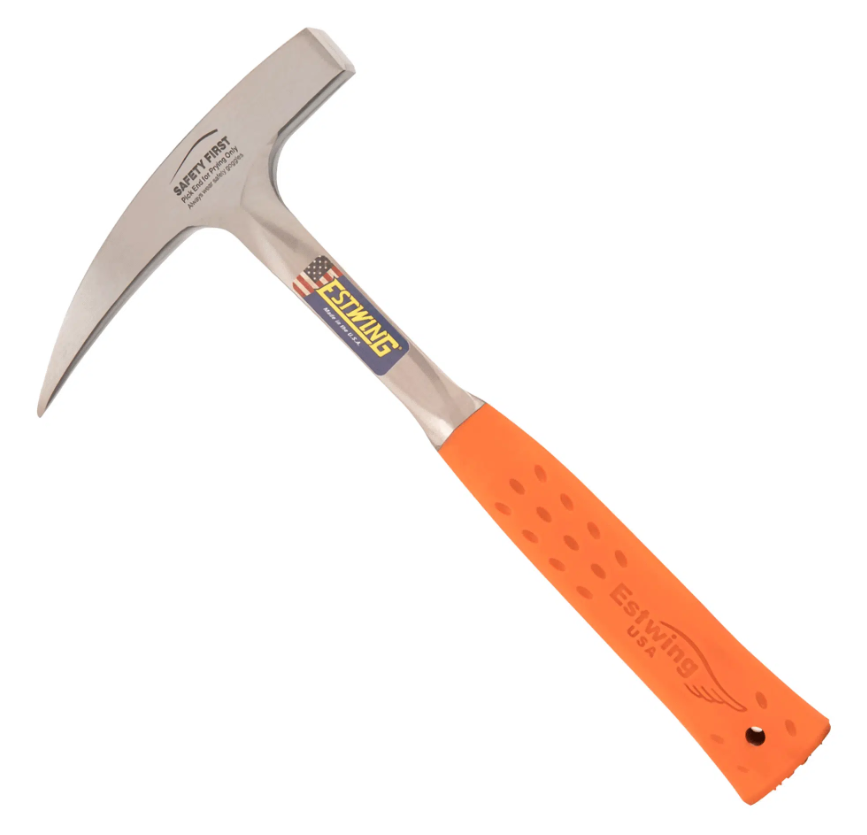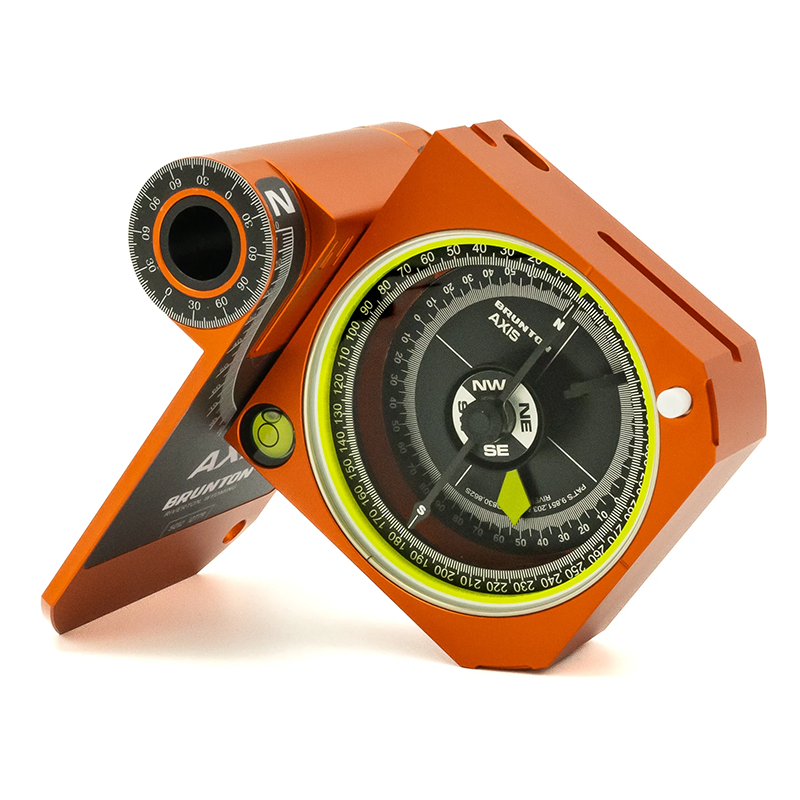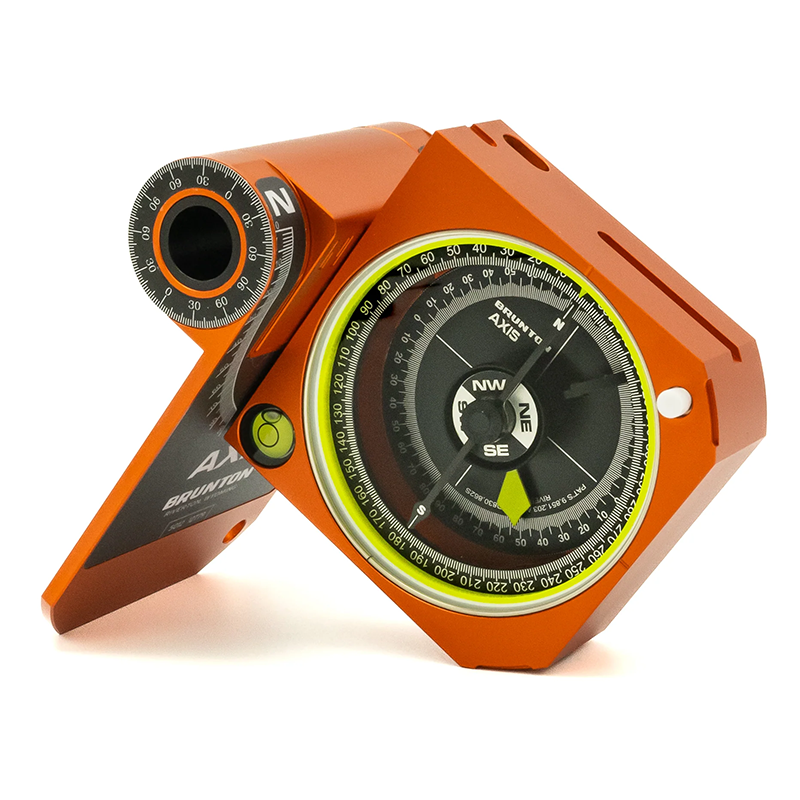Everything a good geologist's hammer must have to be fully functional and durable.
Essential Elements of a Compass for Geologists
A compass is a must-have tool for a geologist's fieldwork. Here are the essentials that a good compass for geologists should have:
1. Magnetized needle:
o The magnetized needle is the heart of the compass. It must be sensitive and accurate to point toward magnetic north.
o Its arrangement must allow it to rotate freely in a horizontal plane, which allows the azimuth to be read.
o The accuracy and tolerance of the error depend on the type of work to be done, and it should be less than 1º for scientific and professional works.
2. Clinometer:
o It is imperative that the compass contains a graduated clinometer in order to take slope measurements.
o The accuracy of the clinometer depends directly on the quality of the compass. The Brunton brand offers great quality in this regard.
3. Box & Scoreboard:
o The box that houses the needle must be robust and withstand adverse field conditions, such as rain, temperature changes, pressure, and insolation, among others.
o The marker (graduation) around the needle indicates the degrees or cardinal directions. In specialized compasses such as the Brunton, the graduated circle is inverted to take direct measurements.
4. Integrated Level:
o A compass with a small built-in level helps ensure that it is level when taking azimuth measurements.
o In certain models such as Brunton's, a level is also needed to take slope measurements.
5. Declination Adjustment:
o The compass should allow adjustment of the declination angle based on location on Earth. This compensates for the difference between geographic north and magnetic north. For example, in Barcelona, the declination is 2.5º east, and the compass must be adjusted according to this information.
6. Magnifying glass:
o A built-in magnifier makes it easy to accurately read the marker.
7. Measurement Scales:
o The compass should have measurement scales for angles (azimuth) and other functions such as triangulation and measuring structural alignments. Some models incorporate scales to allow measurement on maps.
8. Pinule and Sights:
o The accuracy of the compass depends on whether it allows you to aim at various distances. This action is performed with moving parts of the compass itself.
9. Magnetic Interference Resistance:
o The compass must be robust against local magnetic disturbances, such as the presence of ferromagnetic minerals.
10. Durability and Portability:
o A compass for geologists should be easy to carry during field explorations and have a long service life.
11. Directions for Use:
o A clear and concise usage guide is essential for geologists to get the most out of their compass.
In short, a compass for geologists must be accurate, robust, and reliable. With a tool like this, you'll be able to navigate the terrain, measure orientations, and conduct structural studies in a professional manner.




Leave a comment